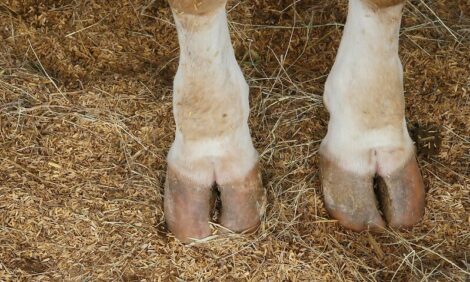



No Relief in Sight - California Could Lose 100 Dairy Farms
US - The nation's drought and high corn prices are devastating California's $8 billion dairy industry to the point where farmers can't afford to feed their cows - and their professional trade organization has been regularly referring despondent dairymen to suicide hotlines.According to The San Francisco Chronicle, experts in the industry estimate that by year's end California, the largest dairy state in the nation, will have lost more than 100 dairies to bankruptcies, foreclosures and sales. Milk cows are being slaughtered at the fastest rate in more than 25 years because farmers need to save on corn costs. According to the Western United Dairymen, a California trade group, three dairy farmers have committed suicide since 2009, despairing over losing their family's dairies.
The problems started in 2009, when milk prices bottomed out and grain prices soared, partly due to the government's ethanol mandate. Congress is requiring that gasoline producers blend 15 billion gallons of ethanol, made from corn, into the nation's gas supply by 2015. Dairy farmers were forced to borrow against their land and cows to make their bills.
Then, this year, the worst drought in half a century struck in the Midwest, and corn prices tipped the scale at more than $300 a ton. Historically, the price for corn has averaged $130 a ton. Even though milk prices have slowly come up - in November, it will be at a near record high of $23.17 for 100 pounds of fluid milk - farmers are barely breaking even because of grain and hay costs. Experts predict that consumers will start seeing a price increase for dairy products at the cash register starting in November.
Now, not only can't farmers pay their feed bills, but they also can't make their loan payments. As a result, farmers are having to slaughter productive milk cows once worth $2,000 each for meat, and are receiving only $1,200 a head. "I've never seen a time where a milk cow is worth more for meat salvage than dairy production," said Ray Souza, a Turlock dairyman whose grandfather started dairy farming in 1930.
Michael Marsh, CEO of the Western United Dairymen, said 24,900 more dairy cattle have been sent to slaughter this year than the total number in 2011.
Feed companies, afraid of being stiffed, are requiring farmers to pay up front, or with a cashier's check upon delivery. For farmers behind on their feed payments, some companies have even asked for a second deed of trust as collateral on the herd, or the farm, Marsh said. Many dairy farmers are simply giving up and getting out.
Farmers plan to rally in Sacramento today, pleading with California Department of Food and Agriculture Secretary Karen Ross to make milk price adjustments, which are primarily fixed by the Chicago Mercantile Exchange, though the state does have some wiggle room. Farmers have petitioned Ross to increase the cap on the whey portion of the pricing formula for milk used in cheese to as much as $2 more per 100 pounds.
"In essence, we're asking her to save our butts," said Tom Barcellos, who owns dairies in the Tulare County towns of Porterville and Tipton and is chairman of the Western United board.
But the Food and Agriculture Department, which in July made a 50-cent concession in the whey factor, has already told dairy farmers that it won't increase it further.
Steve Lyle, a spokesman for the department, told The San Francisco Chronicle, that the agency is concerned about the "perfect storm" that has affected the industry, but it can only do so much.
"When considering changes to the formulas used to calculate the minimum price, the department is obligated to balance the economic impacts on producers, processors and consumers to ensure there is sufficient milk to meet demand, and that demand remains consistent," he said. "Data shows short-term price adjustments would not be an effective approach."
Instead, the department is assembling the Dairy Future Task Force, a coalition of dairy producers, processors and cooperatives, that will make recommendations to give the industry longevity, Mr Lyle said.
In the meantime, dairy farmers say they don't know how much longer they can hold on.
"We have always seen prices go up and down," Mr Barcellos said. "It's the nature of the business, and we've become eternal optimists. But now there is no relief in sight."
TheCattleSite News Desk


